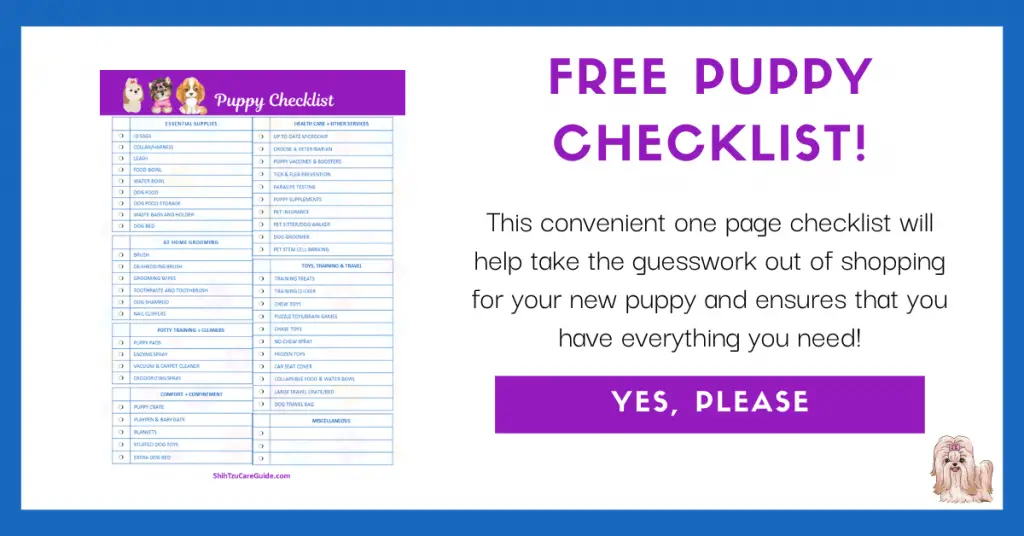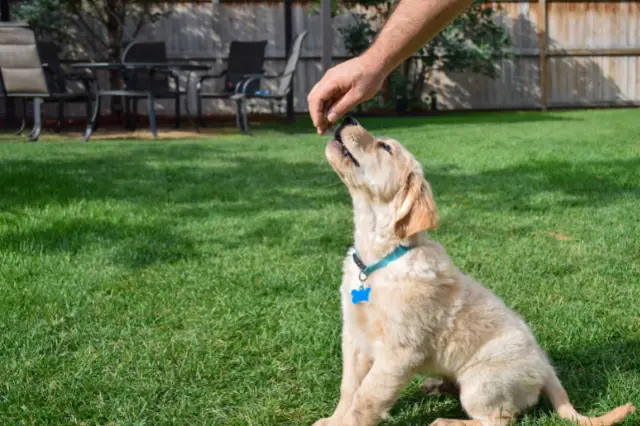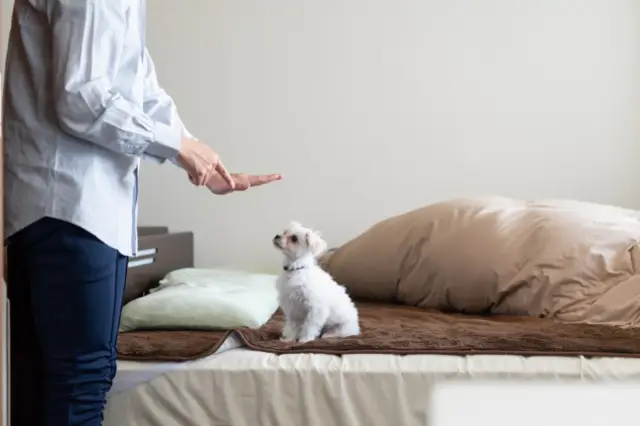Owning a Shih Tzu puppy is a big responsibility. They are adorable, but they also require a lot of training and patience. To help get you started, we will discuss 11 basic training tips.
Training your Shih Tzu puppy early on will help them develop good habits and ensure that they grow up to be well-behaved dogs.
Here are 11 basic training tips for Shih Tzu puppy owners:
1. Start Training Early
The earlier you start training your puppy, the better. Puppies have a shorter attention span and are more likely to learn new things when they are young.
Starting basic training early will also help your puppy develop good habits from a young age.
2. Start with Basic Commands
When you first start training your puppy, it is important to start with basic commands such as sit, stay, come, and down. These commands will help you establish yourself as the Alpha dog and teach your puppy basic obedience.
As your puppy grows older, you can begin to teach them more advanced commands. However, it is important to master the basic commands first.
Teach your puppy to sit by holding a treat in front of their nose. Once they sit, give them the treat and praise them enthusiastically.
To teach your puppy to stay, have them sit or lie down and then hold a treat in front of their nose. Take a few steps back and say “stay” in a firm voice.
If they stay put, give them the treat and praise them. If they get up, simply start over again.
Come is another basic command that is important for Shih Tzu puppy owners to teach their puppies. This command will come in handy if your puppy ever gets loose and you need to recall them.
To teach your puppy to come, hold a treat in your hand and call their name. When they come to you, give them the treat and praise them.
Down is a command that can be helpful when you need your puppy to settle down. To teach your puppy to lie down, have them sit or stand and then hold a treat in front of their nose.
Slowly lower the treat to the ground and say “down” in a firm voice. Once they lie down, give them the treat and praise them.

3. Use Positive Reinforcement
When training your puppy, it is important to use positive reinforcement. This means rewarding your puppy when they do something you want them to do.
The most common form of positive reinforcement is using treats. However, you can also use verbal praise and petting as forms of positive reinforcement.
It is important to only give rewards when your puppy does something you want them to do. If you give rewards randomly, your puppy will not be able to associate the reward with the desired behavior.
When using treats as a form of positive reinforcement, it is important to use small, bite-sized treats. This way, you can give your puppy more frequent rewards without overfeeding them.
4. Practice in Different Locations
When you are first training your puppy, it is important to practice in different locations. This will help your puppy generalize the commands and learn that they need to obey them no matter where they are.
To practice in different locations, start by working on basic commands in your home.
Once your puppy has mastered the commands in your home, take them to a park or another location and practice there.
5. Socialize Early and Often
Socialization is an important part of training for Shih Tzu puppies. It is important to expose your puppy to different people, places, and experiences so that they can learn how to behave around them.
One way to socialize your puppy is to take them on walks in different neighborhoods. This will help them get used to different people and environments.
Another way to socialize your puppy is to take them to puppy classes. These classes will help your puppy learn how to interact with other puppies and people in a controlled environment.
Puppy socialization is important for helping your puppy grow into a well-rounded dog.

6. Keep Training Sessions Short
When you are training your puppy, it is important to keep training sessions short. As mentioned before, puppies have short attention spans and will get bored or frustrated if you try to train them for too long.
A good rule of thumb is to keep training sessions to about 15 minutes. This way, your puppy can focus on the task at hand, and you can end on a positive note.
If you find that your puppy is getting bored or frustrated during a training session, take a break, and try again later.
7. Be Consistent
When you are training your puppy, it is important to be consistent. This means using the same commands and rewards every time.
If you are not consistent, your puppy will get confused and will not be able to learn the desired behavior.
It is also important to have all family members be consistent when training your puppy. This way, your puppy will learn the desired behavior from everyone in the household and will be more likely to obey it.
8. Be Patient
Training a puppy takes time and patience. You will not be able to train your puppy overnight and there will likely be setbacks along the way.
It is important to have realistic expectations when training your puppy. They are still learning, and it will take time for them to learn the desired behavior.
If you get frustrated or angry during training, take a break and come back later. Getting angry will not help your puppy learn and will only make the training process more difficult for everyone.

9. Avoid Punishment
Punishment is not an effective way to train your puppy. In fact, it can actually make the problem worse.
If you punish your puppy for doing something wrong, they will learn to fear you and will be less likely to obey you.
Punishment can also lead to aggression in puppies.
10. Have Fun
Training your puppy should be a fun and positive experience for both of you. If you are not having fun, chances are your puppy is not either.
When training your puppy, try to keep things light and upbeat. This will help your puppy stay focused and motivated.
11. Get a Professional Trainer
If you are having difficulty training your puppy, don’t hesitate to seek professional help from a qualified dog trainer. Sometimes an outside perspective can make all the difference in the world.
A professional trainer can help you troubleshoot problem behaviors and develop a training plan that is tailored to your puppy.
In Conclusion
Training your Shih Tzu puppy doesn’t have to be difficult. By following these basic tips, you can set your puppy up for success. Be patient, be consistent, and most of all have fun!
With a little time and effort, you will have a well-trained pup in no time. If you need help along the way, don’t hesitate to seek professional assistance from a qualified dog trainer.



